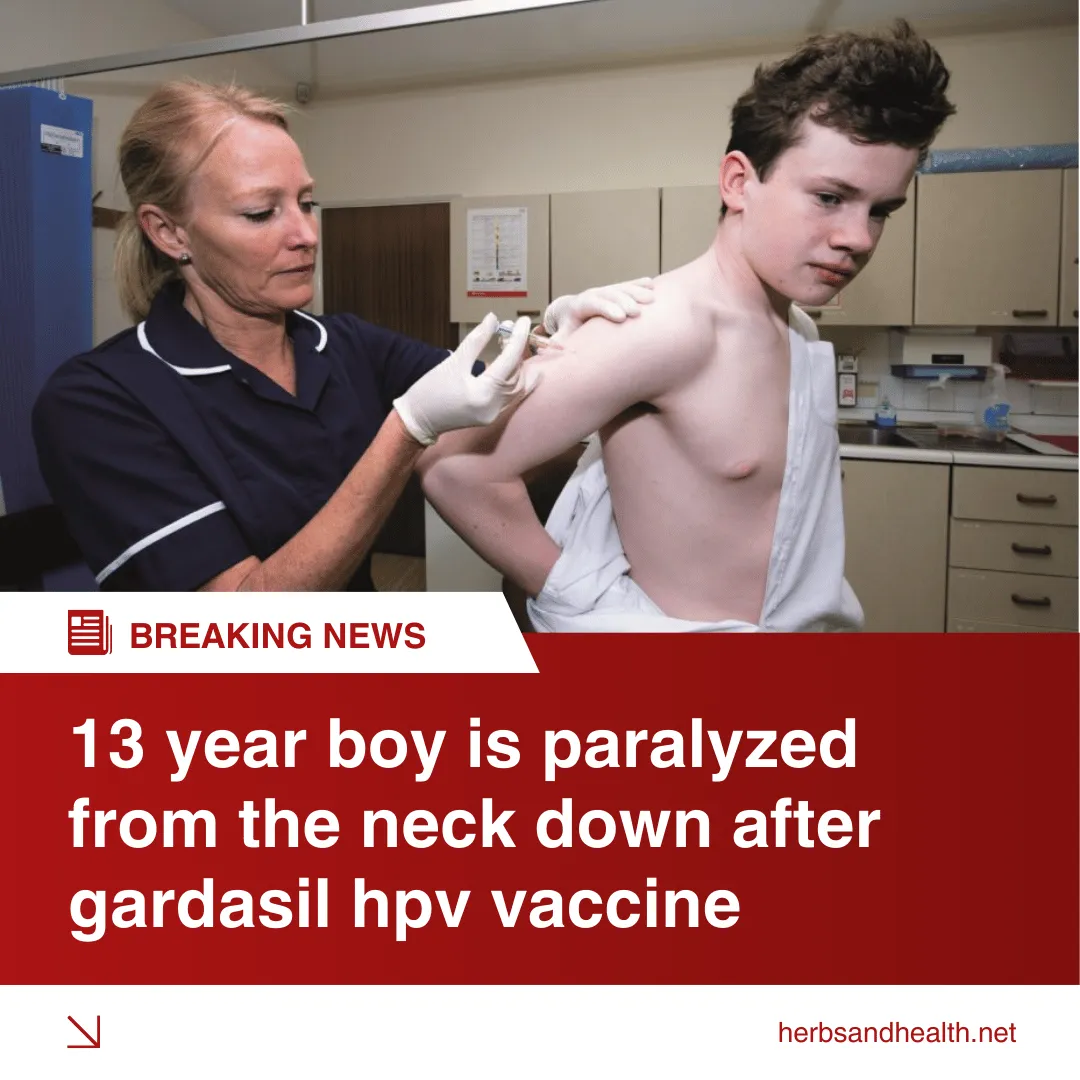A 13-year-old boy has been left paralyzed from the neck down after receiving the Gardasil HPV vaccine, according to his family. What began as a routine vaccination to protect against certain strains of the human papillomavirus (HPV) has turned into a life-altering tragedy for the young boy and his parents, who are now seeking answers and accountability.
A Routine Visit with Unexpected Consequences
In late September, Mark U., a healthy and active teenager with no known medical conditions, received the Gardasil vaccine during a routine check-up. The vaccine, approved by health authorities worldwide, is widely administered to prevent cervical and other HPV-related cancers.
According to his parents, Mark began experiencing unusual symptoms just days after receiving the shot. What started as fatigue and weakness in his arms quickly progressed to severe neurological impairments. Within two weeks, he was hospitalized and diagnosed with transverse myelitis, a rare condition that causes inflammation of the spinal cord.
Medical Opinion and Controversy
Doctors at hospital are working to understand the cause of his sudden paralysis. While some healthcare professionals suggest a potential link between the vaccine and his condition, others emphasize the rarity of such adverse reactions, stressing that Gardasil has been extensively studied and deemed safe for the vast majority of recipients.
Dr. Mishoven, a neurologist at the hospital, stated:
“Transverse myelitis is extremely rare and can be triggered by various factors, including infections and immune responses. While vaccines have been associated with such conditions in isolated cases, establishing a definitive link requires extensive investigation.”
A Family’s Struggle
For Mark and his family, life has been turned upside down. Once a soccer enthusiast and top-performing student, he now relies on a ventilator and round-the-clock care. His parents have taken leave from their jobs to manage his condition and are exploring rehabilitation options, though doctors remain uncertain about his chances of recovery.
His mother, shared her heartbreak:
“We trusted the vaccine would protect our son, not take away his ability to walk, move, or even hug us. We just want answers and to make sure this doesn’t happen to anyone else.”
The Broader Debate on Vaccine Safety
The case has reignited debate about the safety of the Gardasil vaccine. While millions of doses have been administered worldwide with an excellent safety record, adverse events—though rare—have been reported.
Advocates emphasize the vaccine’s benefits in preventing life-threatening cancers, particularly cervical cancer, which claims thousands of lives each year. However, critics argue that potential risks, no matter how small, warrant further transparency and research.
Dr. Aliayah Kensen, an advocate for informed consent, commented:
“Vaccines save lives, but it’s crucial for parents to have access to all the data, including potential risks, so they can make informed decisions for their children.”
Calls for Investigation
The boy’s family has filed a report with the Vaccine Adverse Event Reporting System (VAERS) and is urging health authorities to investigate the case thoroughly. They are also seeking legal advice to explore potential compensation through the National Vaccine Injury Compensation Program (VICP).
What’s Next?
As Mark begins his long road to rehabilitation, his parents remain hopeful that their story will shed light on vaccine safety and encourage further research into rare but serious side effects.
For now, their priority is ensuring their son receives the best possible care.
“We want him to have every chance to regain some quality of life. We owe him that much,” said his father, [father’s name].
This tragic incident highlights the need for balanced discussions on vaccine safety and underscores the importance of ongoing research to ensure the well-being of all recipients. While such events are exceptionally rare, they serve as a reminder of the importance of monitoring and investigating adverse reactions to safeguard public health.
